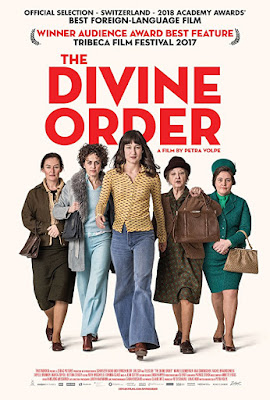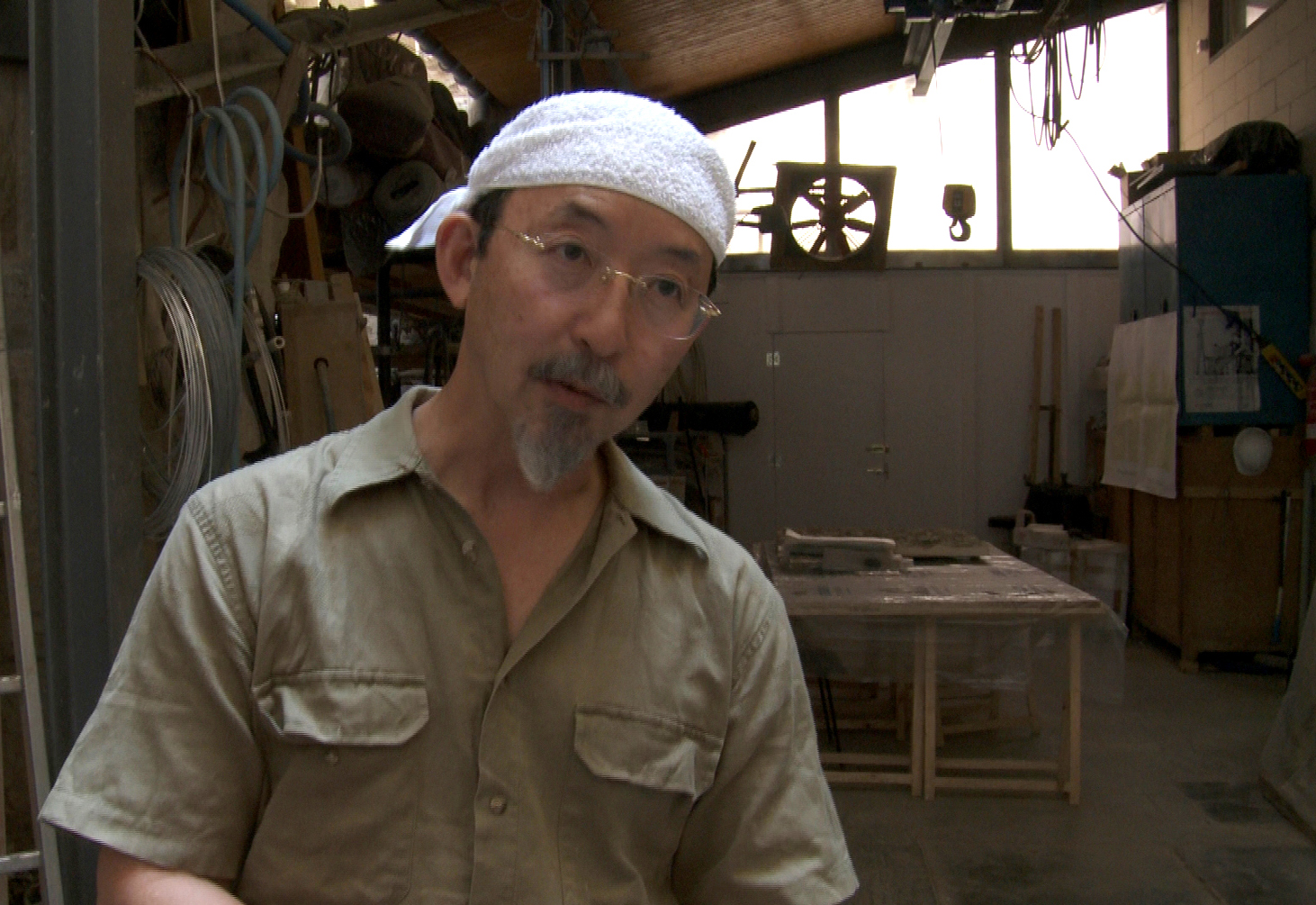I had forgotten just how very late in the western-civilization game that the country of Switzerland finally recognized women's right to vote: 1971. That's a jaw-dropper. (You can find the year in which each of the world's countries recognized women's suffrage here.) Swiss filmmaker Petra Volpe has made a tasty little delight centered around that landmark Swiss year and what happened in one particular small town that helped change things. Unlike 2015's much darker Suffragette, THE DIVINE ORDER proves a lighthearted but also smart and genuinely "felt" film about this fraught time -- when the rest of the western world was experiencing everything from the sexual revolution to anti-war protests but Switzerland was still back in the dark ages concerning certain subjects.
As both writer and director, Ms Volpe (shown at right) trusts her subject to make its own importance clear, and she doesn't paint her little town as any hotbed of anti-woman feelings. It's simply patriarchal and old-fashioned -- with all that goes along with those conditions. Old habits die hard, as they say, and Switzerland proves not much different from other locales -- just later in coming to terms with change.
The group of women Volpe creates is given fine life by the set of actresses chosen for the roles, beginning with the film's wonderful star, Marie Leuenberger (of Amnesia and The Circle), who won the Tribeca Film Fest's Best Actress award for her work here.
Ms Leuenberger, above, plays Nora, a mousy little Swiss hausfrau with a decent, hunky husband (Maximilian Simonischek, below, right), a couple of cute kids, and a nasty, lazy father-in-law and brother-in-law in tow. When an interesting, random and quite believable confluence of events forces a crack in Nora's sense of identity and justice, that crack keep opening slowly into, well, a whole new world of change.
Helping that change occur are a number of local women, each with her own special problem to solve, but each also open to aiding the others in solving theirs. So this is a "solidarity" movie, yes, but it's one with a large, open heart and a mind sharp enough to recognize that the "other" -- men, and even some of the town's women who refuse to understand what suffrage and justice could bring -- are not the enemy per se but rather "family" that must be made to embrace progress.
How all this comes about proves alternately funny, moving and very specific -- bringing together several generations of women (and men) into a time of change in which most do not always behave in an admirable way, yet still manage to learn from their mistakes.
Featuring a plethora of juicy scenes, the movie's best of all is the one (below) in which the sexual revolution suddenly enters these women's lives as they learn for the first time about the look, as well as the uses, of their own vagina.
Sure, The Divine Order is a feel-good movie, but it offers enough irony, human foibles and satire (of religion and hypocrisy, among other subjects) to ensure that the feeling good is fully deserved. Performances are fine down the line, with Ms Leuenberger absolutely memorable as a country mouse who becomes a "tiger" without losing a trace of her humanity or generosity.
As both writer and director, Ms Volpe (shown at right) trusts her subject to make its own importance clear, and she doesn't paint her little town as any hotbed of anti-woman feelings. It's simply patriarchal and old-fashioned -- with all that goes along with those conditions. Old habits die hard, as they say, and Switzerland proves not much different from other locales -- just later in coming to terms with change.
The group of women Volpe creates is given fine life by the set of actresses chosen for the roles, beginning with the film's wonderful star, Marie Leuenberger (of Amnesia and The Circle), who won the Tribeca Film Fest's Best Actress award for her work here.
Ms Leuenberger, above, plays Nora, a mousy little Swiss hausfrau with a decent, hunky husband (Maximilian Simonischek, below, right), a couple of cute kids, and a nasty, lazy father-in-law and brother-in-law in tow. When an interesting, random and quite believable confluence of events forces a crack in Nora's sense of identity and justice, that crack keep opening slowly into, well, a whole new world of change.
Helping that change occur are a number of local women, each with her own special problem to solve, but each also open to aiding the others in solving theirs. So this is a "solidarity" movie, yes, but it's one with a large, open heart and a mind sharp enough to recognize that the "other" -- men, and even some of the town's women who refuse to understand what suffrage and justice could bring -- are not the enemy per se but rather "family" that must be made to embrace progress.
How all this comes about proves alternately funny, moving and very specific -- bringing together several generations of women (and men) into a time of change in which most do not always behave in an admirable way, yet still manage to learn from their mistakes.
Featuring a plethora of juicy scenes, the movie's best of all is the one (below) in which the sexual revolution suddenly enters these women's lives as they learn for the first time about the look, as well as the uses, of their own vagina.
Sure, The Divine Order is a feel-good movie, but it offers enough irony, human foibles and satire (of religion and hypocrisy, among other subjects) to ensure that the feeling good is fully deserved. Performances are fine down the line, with Ms Leuenberger absolutely memorable as a country mouse who becomes a "tiger" without losing a trace of her humanity or generosity.
From Zeitgeist Films -- in German and a bit of Italian with English subtitles, and running a just-about-perfect 96 minutes -- the movie is Switzerland's entry into the Best Foreign Language Film "Oscar" race. I wouldn't be at all surprised to find it placed on the shortlist. The film opens tomorrow, Friday, October 27, in New York City (at Film Forum) and Santa Barbara (the Riviera) and on November 17 in Los Angeles at Laemmle's Royal and Playhouse 7. Here in Boca Raton it will open at The Living Room Theater on December 1. To see all currently scheduled playdates, cities and theaters, click here and scroll down.
























































